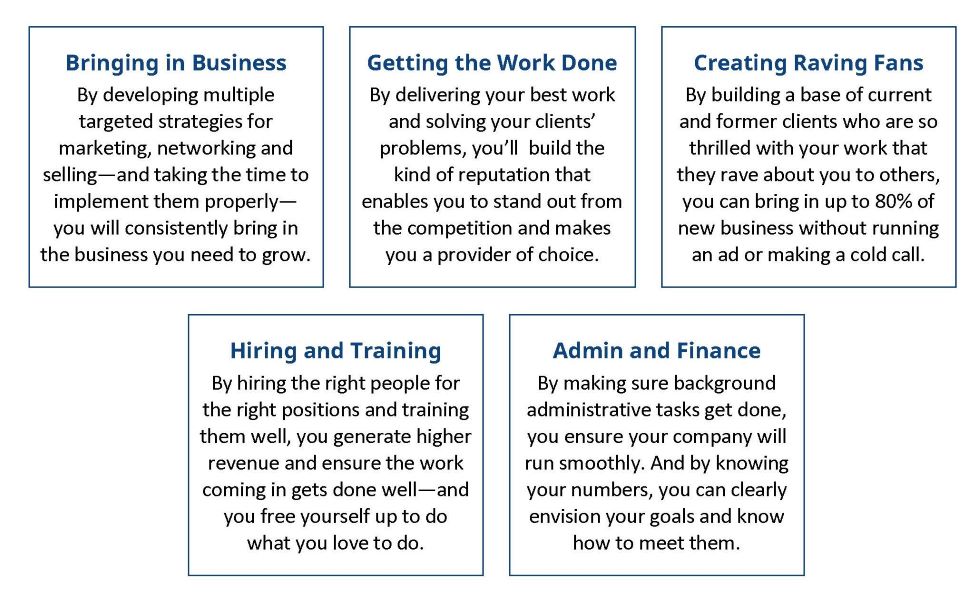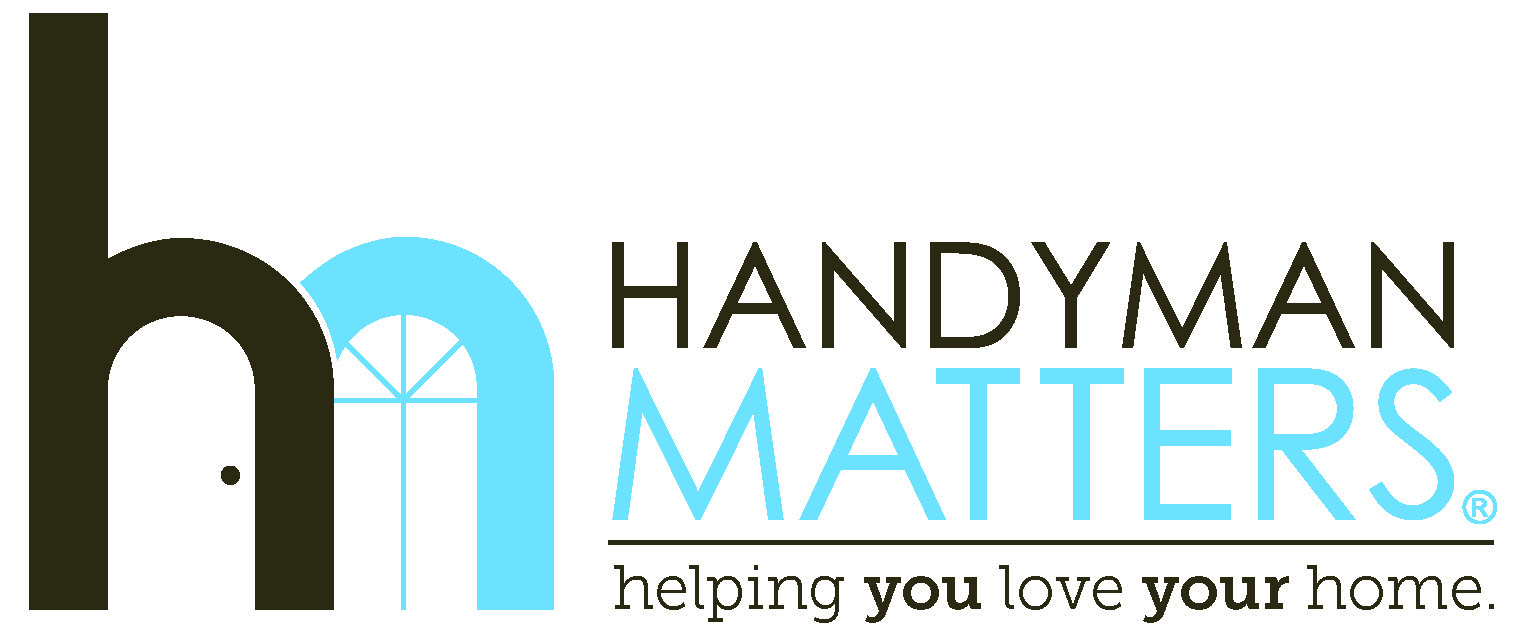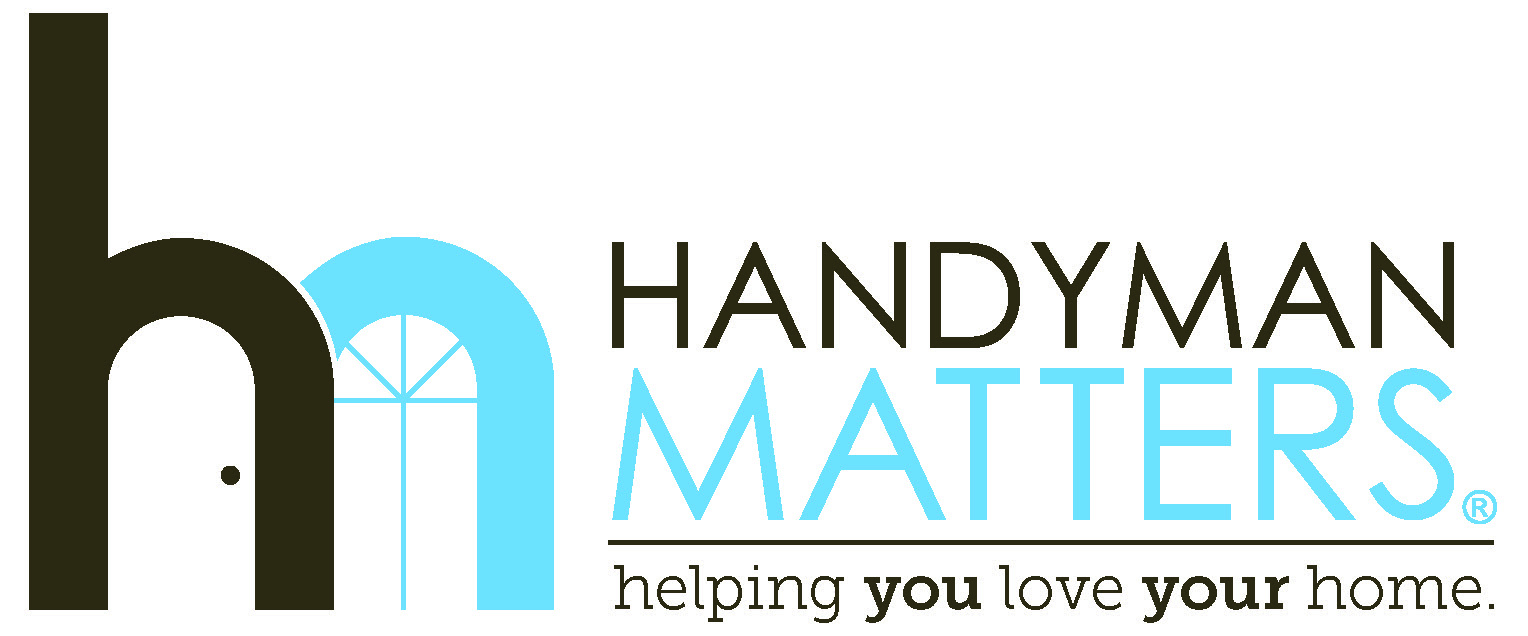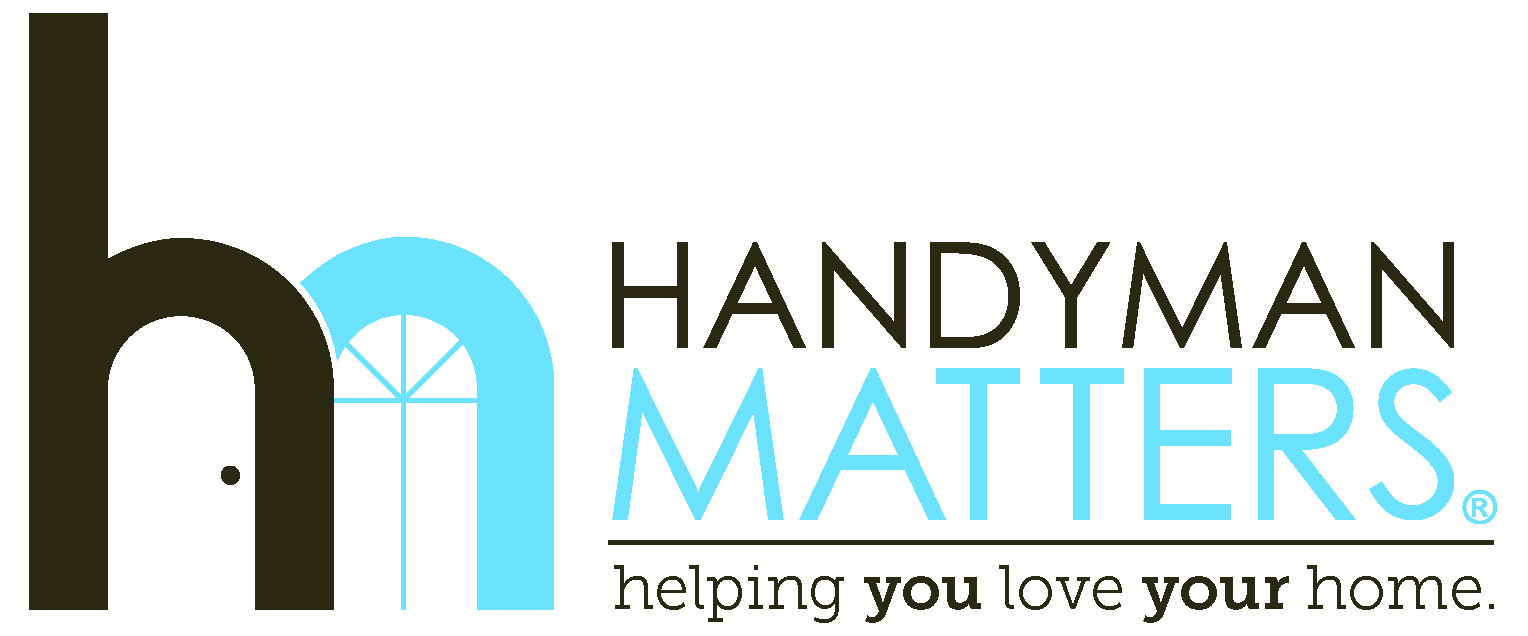A property manager friend of mine recently asked me what he can do to make sure his business is a success. He’s feeling behind the eight ball right now, not just with all the talk of a possible recession, but with the day-to- day grind of running a business. I told him I had two pieces of good news:

- There are three things he can do, right now, to significantly increase his opportunity for success.
- Those three things will make him feel less like he’s behind the eight ball and more like he’s behind the wheel.
If you’re not a property manager, please read on! These tactics work regardless of industry and regardless of whether you’re running a business, a department or division within a business, or a team of any size.
#1. Create a Routine
Studies show that having a routine for kids around bedtime, meals, homework, and activities is good for them. This is because routine gives kids a sense of comfort and safety through predictability; regardless of what else happens in the day, they know there are things they can rely on: Mom will pick me up from school; I play soccer at 4 p.m.; I always brush my teeth and get a story before bed.
Having touchpoints isn’t just good for kids; it’s good for adults, too. We’re all juggling a lot of balls, and we might get a new one tossed at us any time. By establishing a routine, we inject some predictability into our lives, build healthy habits, and decrease stress and anxiety.
I know this isn’t like reserving five minutes at night to brush your teeth; establishing a routine in a busy adult isn’t a piece of cake. It requires us to believe in the value of routine and to defend it.
We can do this! Before I tell you about how to create a routine, let me share Bonnie’s story. Bonnie was being pulled in too many directions, and she was struggling with accuracy in her detail-sensitive work. I helped her establish a routine by blocking out specific times during the day to close her door and work on policies. At first, it was hard for Bonnie and her team; they were used to her being available all the time. But as they created a habit around this new routine, a truly wonderful thing happened: Bonnie’s work accuracy and speed went through the roof, her team started working more closely to support each other when she wasn’t available, and the stress level in the office plummeted.
To capture the power of routine, look at tasks you do on a monthly, weekly and daily basis, and build a schedule around those. For instance, a property manager’s schedule might include these recurring tasks:
- Monthly:
- 3rd day of the month: Send out
- 15th: Finish up make-ready.
- 25th: Finalize evictions and
- Weekly:
- Monday: Go through workorders that came in over the weekend or are escalated from last week.
- Tuesday: Meet with maintenance team to assign
- Thursday: Meet with maintenance team to discuss status of workorders and work through challenges.
- Daily:
- 8 m.: Make the day’s to-do list and communicate new priorities to team.
- 10 m.: Check in with team to see what support they need.
- 2 m.: Take a break.

You’ll notice that we’re not scheduling every second of every day, week or month. We’re saving a space for repetitive tasks, so we’re ready for them. For example, let’s look at what I call Maintenance Monday: In the property management world, a property manager comes into the office every Monday to a pile of messages about what broke over the weekend. They also have a list of workorders that weren’t completed the previous week. Whatever the version of this is in your business, it is predictable. By preparing for it and blocking time to address it when you know it will arise, you will process through it more quickly and with less stress.
You’ll also notice that the daily schedule includes taking a break during the workday. That leads us into the second thing you need to do for your business, but before we go there. I want to say this:
You don’t have to do all this at once. No one goes from no routine to 100% routine instantly. In fact, a 100% routine life is unrealistic. There will always be great opportunities, emergencies and challenges that come up. Like any habit, routine takes time to build, so start with a couple of things, like taking a break every single day and scheduling in your version of Maintenance Mondays. Build that habit, enjoy the benefits of it, then add on another one.
For more on tools for building healthy routines, read my blog article Find Time By Saving Time or listen to my podcast How to Get More Done in Less Time.
#2: Destress Yourself
I know what you’re thinking: I’m tough; I can do what I need to do by working harder. Even if I were the kind of wimp who needs to take time for myself, I don’t have time to take time for myself! Don’t you get it, Jim Roman?! I need to do more not less!
I do get it. I get it because I have been that kind of person. Let me get personal and passionate with you: It wasn’t too long ago that I considered reaching for two or three bourbons and too many slices of pizza the ultimate in self-care. When I was stressed, I drank. I ate. And let me tell you: I did not feel better in the morning. I wasn’t ready to tackle the challenges in my business, much less take my business to new heights. I was hanging on by the skin of my teeth, but I refused to see it.
That is no way to live.
What I realized, eventually, was that I wasn’t doing my business any favors by throwing everything I had into my business, because I was taking such bad care of myself that everything I had wasn’t very good. Like they say: Garbage in, garbage out.
If you don’t take care of yourself, you can’t take care of your business. Think about what flight attendants say: In case of emergency, put the oxygen mask on yourself before helping someone else.
Besides the negative impact that working ourselves to death—sometimes literally—has on our business, I also don’t think this is what God wants for us: slogging away for sixty hours or more a week just to collapse every weekend into alcohol, food and binge TV.

I listened to my heart and I listened to God, and now when I sit down with a bourbon, it’s to savor it while enjoying the beautiful view off my patio. When I indulge in great food, it’s often while hanging out with great friends. I go for walks and to the gym to keep my body healthy. I look for ways to refresh and recharge myself so I can live my best life and bring my best self to my business.
I know the guilt that comes with that, and it is real, especially at first. But it does fade. As you start taking care of yourself, your guilt will have nothing to say about it because it will see how your happier, healthier, cared-for self is a better caretaker for your business than you could have ever imagined.
Give yourself a chance to see it for yourself: Starting today, do one small thing for yourself, every day. Take a walk on the beach; go for a bike ride; hit the gym; meet up with friends; get a massage; linger over a cup of coffee or tea. Even just step out of the office for fifteen minutes. Remember smoke breaks? Take a breathing break and get some fresh air.
If you don’t listen to anything else I say, please listen to this. It’s important, maybe the most important thing you will ever do for yourself, your business and your friends and family.
For more guidance on how to make this work for you, read my blog The Recharge Challenge Revisited. And ask yourself, At the end of my life, which do I really want to have done more of: working or living?
#3: Work On Your Business, Not Just In It
The third thing you need to do for your business takes #1 to the next level; it moves you from being reactive to proactive. Building a routine is the start, but the greatest impact is when you stop letting circumstances drive you and you become the driver of your circumstances. That happens when you:
- Organize your space
- Organize your thoughts
- Organize your business
Organize your space
I’ll admit it: I’m a pile guy. I have piles on my desk, on my table, on my floor. Piles work for me, but I have to manage them. For me, that means keeping everything off my desk except the things I need to work on right then. When you put things in their proper place—whatever their proper place for you is—you’ll feel more in control and focused.
You’ll also be able to put your hands on what you need, when you need it. If you can’t find a proposal when it’s time to follow up with a prospect, you are wasting time and the energy you need for bringing your best self to that call. When your space is organized, you work more effectively and efficiently, and you feel better at the end of your day. You might even be able to leave work early!
Organize your thoughts
At one level, organizing your thoughts is about all those things banging around inside our heads. David Allen, an expert on personal productivity, famously said, “Your mind is for having ideas, not holding them.” However you do it—on paper, on an envelope, with an app or calendar—get what’s in your head out of your head by writing it down. That clears up space for processing information and solving problems, which is what our brains do best.
At a deeper level, organizing your thoughts is about knowing what you want out of life and business. When you have a clear vision of what you want to accomplish, you can turn it into reality. To do that, ask yourself:
- Why do I do what I do—besides to make money? This gets to the heart of why you have this particular company doing this particular service.
- Where do I want to be in life? If we want to bring our best selves to our business—for the sake and success of our business—we need to be brave enough to dream about our life,
- What do I want my business to look like, act like and feel like? This is the nuts and bolts of the organizational structure, finances and culture that our business needs to be its own best
Organize Your Business
The answer to that third question gets you started on organizing your business, but I recommend getting formal about it by categorizing the tasks of your business in terms of the Five Functions:

By categorizing the tasks of your business into these Five Functions, you’ll be able to see where things are getting done, where adjustments are needed and where things are falling short.
Why These 3 Things Work
When we’re feeling behind the eight ball, it’s often because we’re overwhelmed by things out of our control: There’s nothing I can do about the economy, politics or global events, and my business is just sitting out there, a victim of circumstances.
But we don’t have to be victims. There are things we can take charge of, to armor ourselves against the slings and arrows of the world. When we create a routine, we give space and focus to those tasks that are vital to our business, which means we have space and focus for the unexpected. When we destress ourselves, we bring new energy and creativity to our business and our life. When we work on our business instead of just in it, we build a stronger, more resilient business that can meet challenges and thrive. And we will thrive with it.
You’ve got this. And I’ve got your back.




































































